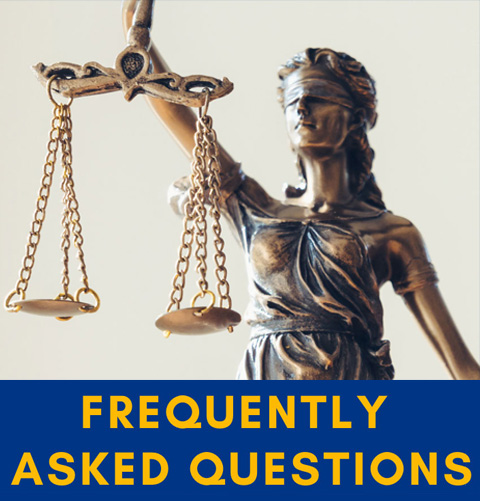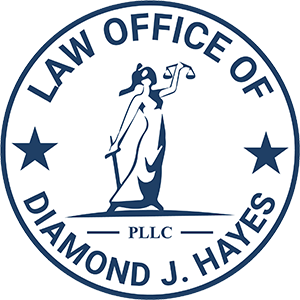

Has my case been accepted for representation?
In order for an attorney to represent you from our office, there must be:
- a written employment contract signed by both you and the attorney, and
- payment received for upfront case-related fees, costs, and expenses.
Can someone else pay my legal fees?
Yes, our office allows a third party to pay your legal fees and expenses. However, regardless of who pays for your legal fees and expenses, the third-party payor is not a client in our office.
Before any client information can be disclosed to a third party, the client must give written, informed permission.
In some cases, we must decline the third-party payments, if acceptance of such payments would likely influence or impair the attorney’s ability to exercise their independent professional judgment on behalf of the client.
What is flat fee billing?
Flat fees billing help you understand exactly how much you will pay to get legal help.
A flat fee is a form of billing that allows for an attorney to charge a fixed, total fee, for the legal services provided in your case. It is important to keep in mind that one flat fee may only cover certain things, and a client may need to pay more for additional services.
After your consultation, you will know if your legal fees and expenses can be paid through a flat fee.
If the circumstances in your case become contested, or the original legal issues have significantly changed since your consultation, you will be required to pay additional legal fees and expenses.
Your signed employment contract will outline exactly what legal services will be provided if your case qualifies for flat fee billing.
What is a contingency fee?
A contingency fee agreement is a form of billing that allows for an attorney to be paid a percentage of the damages awarded at the end of the case instead of an hourly rate. In contingency arrangements, the attorney agrees to take on the case without charging their regular hourly fees.
While the lawyer does not receive their fees until the end of the case (and unless the case is won), the client may still be responsible for a few up-front fees related to work on the case. For example, the client may be responsible for court filing fees, discovery costs, expert witness fees, and other overhead fees in order to keep their case moving along.
You will not incur any legal fees or costs for our time and assistance unless we do our job and earn you a trial verdict or settlement. We have every incentive to maximize your recovery.
- a written employment contract signed by both you and the attorney, and
- payment received for upfront case-related fees, costs, and expenses.
Should I compare attorneys?
This is a personal decision. The most important thing to look for in a lawyer is how well they fit the needs of your case.
If the quoted legal fees and expenses are your biggest concern, it never hurts to compare costs between a few lawyers. But, keep in mind, you get what you pay for.
Why does my case get reset so many times?
While most people want the case over so that they can get back to their lives, this delay is necessary so that your attorney can conduct their investigation of the state’s or opposing counsel’s evidence.
Rushing to take a plea or finalizing your case is not always in your best interests.
Do I still need a lawyer even if I am guilty of the charge(s)?
Most definitely! Do you know all of the collateral consequences when the conviction lands on your record? Do you have a defense as to why you did what you did?
Listen, your attorney is there to defend you and get you through the legal system with the minimum amount of consequences. Unfortunately, most people who go to court without an experienced criminal defense attorney seek legal advice from the prosecutor, the court clerks, and even the judge.
Unfortunately, this means they will often recommend what will not be the best result for you.
When can I file for a divorce?
In Texas, you do not have to live apart before you can file your divorce petition. This is because Texas law does not recognize legal separation, so there is no need to live separately before filing for divorce.
But, even if you do decide to live separately before filing for divorce, you will be considered legally married until the divorce is finalized.
What happens if I don't show up to court?
Civil Court: Failure to appear for a hearing or trial in civil court can result in a default judgment placed against you. In other words, whatever the other party asks for at the hearing, they will win in your absence. In addition, you can be held in contempt of court.
Criminal Court: if you fail to appear for your court date, a judge can issue a bench warrant for your arrest and revoke or raise your bail. A police officer will find a record of it whenever they run a check on your name, or a licensed bail bondsman can track you down and take you to jail. You can easily be found by the ever-increasing police departments using license plate scanners to passively check every vehicle.
If this happens, talk to an attorney immediately. Sometimes, circumstances beyond your control kept you from appearing in court, such as a severe illness, an accident, or a natural disaster. If you have a valid reason for not being in court, a judge will give you a second chance.
My spouse and I still live together. When can I file for a divorce?
You do not have to live apart before you can file your divorce petition. This is because Texas law does not recognize legal separation, so there is no need to live separately before filing for divorce. Please be aware of your spouse’s emotional/financial/physical reactions if you decide to file your divorce while still living together.
But, even if you do decide to live separately before filing for divorce, you will be considered legally married until the divorce is finalized.
What is the difference between a contested and uncontested divorce?
A divorce becomes a contested divorce when both spouses cannot agree on how to resolve one or more critical factors of their divorce.
Dating after Divorce. Since I filed for divorce, can I start dating again?
Understandably, you are ready to move on with your love life. However, in Texas, parties are considered married until the divorce is granted. Even after a divorce is filed, dating can be regarded as adultery and can be used against you in your divorce.
Try your best to wait until after your divorce is finalized.
Why must I go through the EEOC when I have an employment discrimination or sexual harassment claim against my employer?
Before an attorney can take on your employment discrimination or sexual harassment case, you need to receive a Notice of Right to Sue from the EEOC. After receiving the Notice, then you must file your lawsuit within 90 days.
You can find more information about all of the necessary steps you need to take before an attorney can take on your employment discrimination or sexual harassment claim at here
When can I change my child support order?
In Texas, a child support order is only eligible for modification if one (or more) of the following applies:
The order was established/last modified more than three years ago;
The monthly amount differs by either 20% or $100 from the amount that would be awarded according to child support guidelines; or
A material and substantial change in circumstances have occurred.
Why can I not bail my child out of the juvenile detention center?
A person who is at least 10 years old and under the age of 17 can be charged as a juvenile delinquent.
If a juvenile gets arrested in Texas, that person is taken to a juvenile detention center instead of jail. In the juvenile justice system, there is no such thing as bail. There is no amount of money a parent can pay to get their child out of detention. Instead, a detention hearing will be held.
The purpose of these hearings is for a judge to determine whether the court should continue to detain that child or release him to a parent or another responsible adult while decisions about that juvenile’s case are made.
Texas Family Code Section 54.01(e) requires that a juvenile be released at a detention hearing unless the judge finds that the youth:
is likely to abscond,
has inadequate supervision,
does not have an adult to bring him back to court,
is a danger to himself or the public safety, or
has previously been adjudicated for an offense and is likely to commit another offense if released.
How can I help my lawyer with my case?
The most important thing you can do to help your lawyer with your case is to be open and honest about the facts and circumstances in your case. Getting legal help is why you hired an attorney.
What your lawyer does not know will only hurt your case.
Secondly, it is highly beneficial to organize your thoughts about what you want from the court and the facts supporting why you should get it. The better your organizational skills, the more you can help your attorney and keep your costs down. For example, gathering and organizing documents, such as bank statements or other financial records, can be very helpful.
Calling your lawyer whenever a question pops up in your head is not an efficient use of your lawyer’s time. However, if a call to your lawyer is necessary, a single organized call to address three questions will be more efficient and less costly than three separate calls.
Also, when you need to vent your feelings and frustrations about the other spouse, talk to a therapist and not your lawyer.
If the legal matter involves your children, please keep a journal of all interactions with your children is helpful.
What criminal records qualify for expunction or nondisclosure in Texas?
Whether you are eligible for an expunction depends on whether your case fits into one of the very specific circumstances described in the Texas Code of Criminal Procedure § 55.
2021 Legislative Notice: Significant changes were made to expunction laws in the 87th Texas Legislature in 2021.
Under Texas Government Code § 411, you may petition for a court order of nondisclosure if you pled guilty or no contest to an offense and have completed deferred adjudication community supervision. There is a five-year waiting period for felonies and a two-year waiting period for serious misdemeanors.
Additionally, most misdemeanor convictions are eligible for sealing. If your punishment consisted of a fine only, there is no waiting period. Otherwise, you must wait two years after you have completed all terms of your sentence to apply to have your record sealed.
If your case meets the criteria, you must file a petition for expunction or nondisclosure in the district court for the county where you were arrested or where the offense occurred.
Talk To An Expungement Attorney.
Who decides to try a juvenile as an adult?
The Juvenile Court oversees minors between 10 and 17 years of age.
Once a person turns 17 in Texas, they are legally considered an adult, and any criminal charges would be handled in adult court.
Generally speaking, if a minor is at least 14 years of age or older, the juvenile judge has the jurisdiction to refer the minor to adult court, known as a “judicial waiver.”
After the case is transferred to adult court, the minor faces being convicted as an adult, meaning the young person deals with the same punishments as adults, including prison time, fines, and a permanent record on your criminal record.
If your child has been arrested in Houston or surrounding areas, contact our experienced legal team at the Law Office of Diamond J. Hayes, PLLC, today and schedule a consultation.
How to find out if you have a warrant?
People with outstanding warrants have options.
You, an attorney, or a bail bond agent can check for arrest warrants in many cases. Most federal governments, including the police stations, and each city, state, and county government maintain their website to search its database for outstanding warrants.
However, it is crucial to know when checking for a warrant may put you at risk of being taken into custody. You can make this call, or a friend or loved one can do it.
For federal warrants, you will need to find your District’s Federal Court and contact the federal clerk of court to check for a federal warrant.
Seeking legal advice from an attorney and turning oneself in is the most advisable course of action. Sometimes, it will reflect much better in the court’s eyes than choosing to wait for the police to make an arrest.
What outcomes are possible if I want to fight my traffic ticket?
Several outcomes are possible when fighting a traffic ticket, and you should fight your ticket because you can.
If you pay the ticket, it is an admission of guilt and results in the highest fine as well as a stain on your driving record.
The best option is that the state’s witness, the police officer, does not show up on the first court appearance date. If this happens, your case is automatically dismissed. You sign some papers and are on your way out of the courthouse.
If the officer is there, your attorney may speak with them to reduce your fine. This type of negotiation is possible, and a reduced fine may result.
Another option for many people is deferred adjudication. Deferred adjudication involves completing specific stipulations by the court, in some cases passing a defensive driving course. With this option, you have a suspended sentence, and upon completion of the course and keeping your record clean, you return to court on a scheduled date, and the misdemeanor is removed from your record.
You may also have a trial by jury, an opportunity to explain the events to a jury of your peers. In this instance, the jury will decide if your case should be dismissed.
We Protect Your Rights, Your Family, and Your Future
A young person going through the juvenile criminal system is a serious matter. A young person can face the possibility of being labeled delinquent after being found true of a wide range of crimes. Though the criminal offenses alleged in the adult criminal system and the juvenile criminal system are the same in either system, the approach and purpose behind the systems differ dramatically.
If you know of a young person who is under investigation or has been accused of a juvenile offense in Fort Bend County, you need to seek the advice of a Missouri City juvenile defense attorney from the Law Office of Diamond J. Hayes, PLLC.
Contact us today for a consultation on your Texas juvenile matter. Our team represents juveniles in Harris and Fort Bend Counties and the surrounding areas. Do not wait to contact an attorney if your child is under investigation or has been called to meet with the juvenile prosecutor. We hope to be of help to you and your family during this challenging time.
